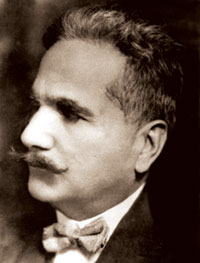
Search the Republic of Rumi
|
By Khurram Ali Shafique
|
||||||||||||||||||||
|
||||||||||||||||||||
|
||||||||||||||||||||
|
||||||||||||||||||||
|
||||||||||||||||||||
|
||||||||||||||||||||
|
||||||||||||||||||||
Here the readers is offered a vision of the world in the light of the principles learnt in the Garden. The guide for this stage is Shabistry (Chapter 61), who leads to Mansur Hallaj (Chapter 75). |
||||||||||||||||||||
|
||||||||||||||||||||
|
||||||||||||||||||||

Search the Republic of Rumi
|
“Khurram Ali Shafique is the first Iqbal scholar to have completed a much-needed requirement in Iqbal Studies that was being pointed out for the last few decades.
“It has been said about the Quran that 'part of it explains other parts of it' and the internal coherence in the writings of Dr. Sir Muhammad Iqbal (1877-1938) has for long seemed to be inspired from this aspect of the Divine Word. The thread that runs through his poetry and the function of his lectures as an expression of his poetry were all aspects that were briefly touched upon in Iqbal Studies but no one had ever attempted to articulate the architectural whole of Iqbal's canon in order to show the intricacy of the complete design. This is what Shafique has done in The Republic of Rumi through a narrative that is remarkably readable and accessible without losing the depth that should be expected in such a work. This is a book for our times and of our times.”
—M. Suheyl Umar, Director, Iqbal Academy Pakistan

 Special
thanks to
Special
thanks to  This is an interactive summary of the works of the Poet-Philosopher Dr. Sir Muhammad Iqbal (1877-1938), one of the most significant disciples of Mawlana Jalaluddin Rumi (1207-1273) in modern times. It is a voice of hope and a call for bringing positive change.
This is an interactive summary of the works of the Poet-Philosopher Dr. Sir Muhammad Iqbal (1877-1938), one of the most significant disciples of Mawlana Jalaluddin Rumi (1207-1273) in modern times. It is a voice of hope and a call for bringing positive change.





























































































